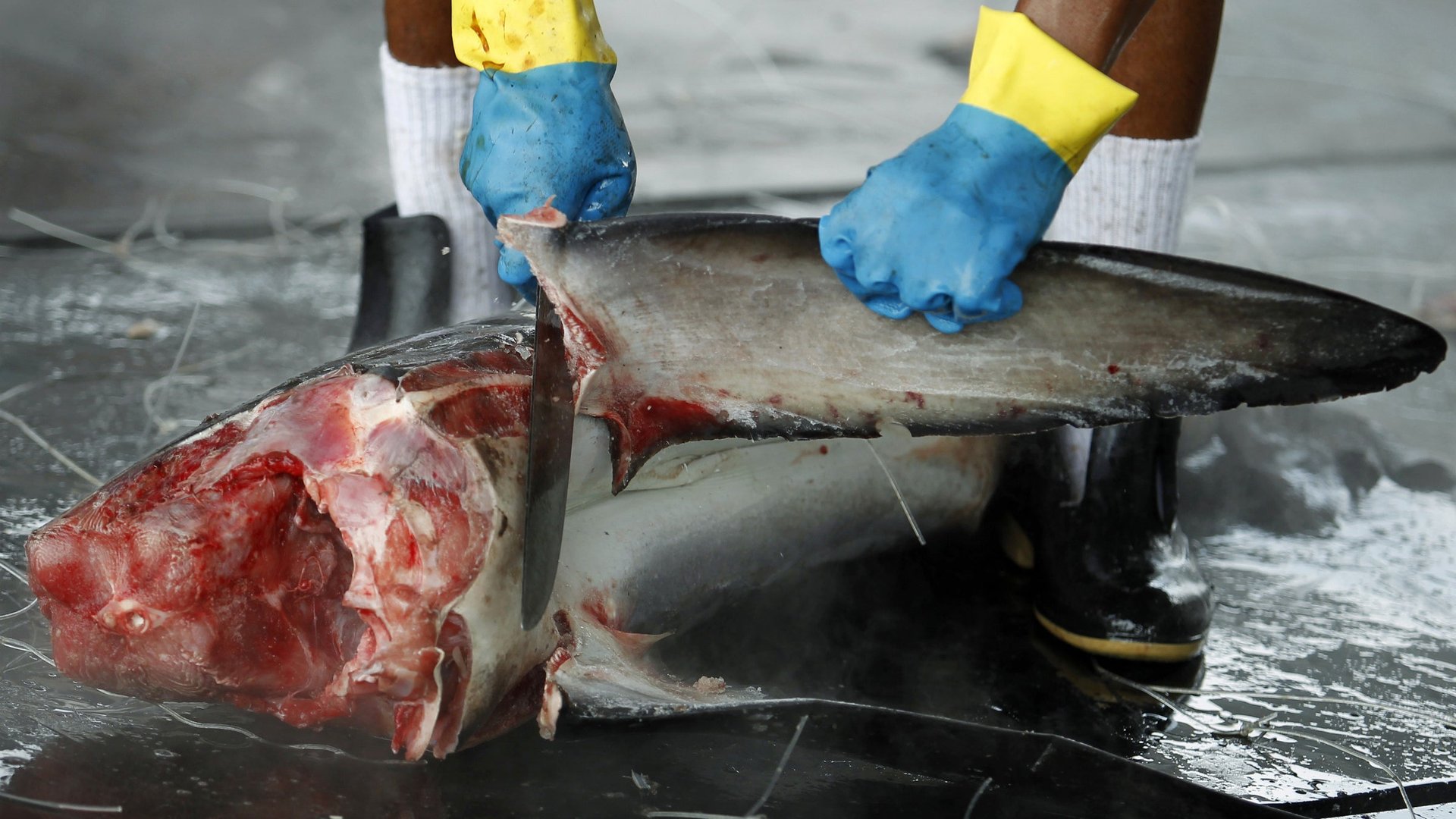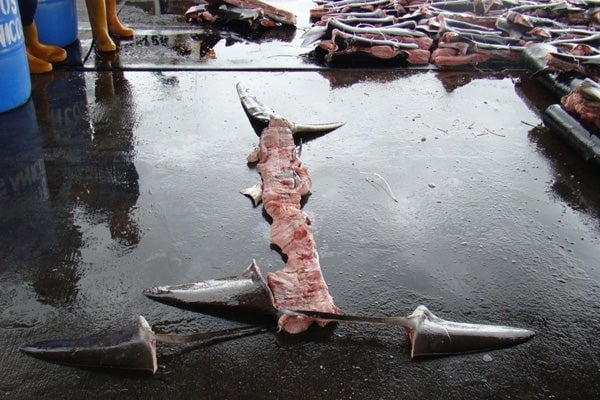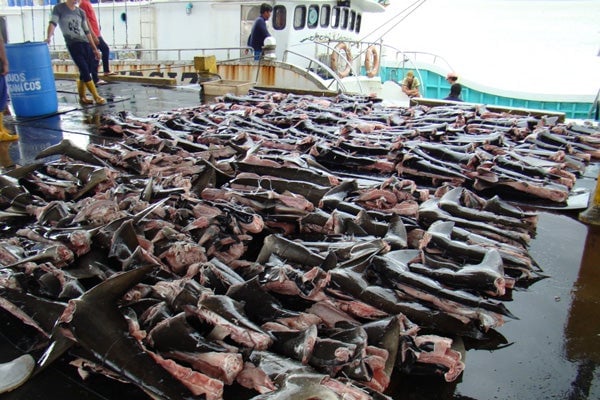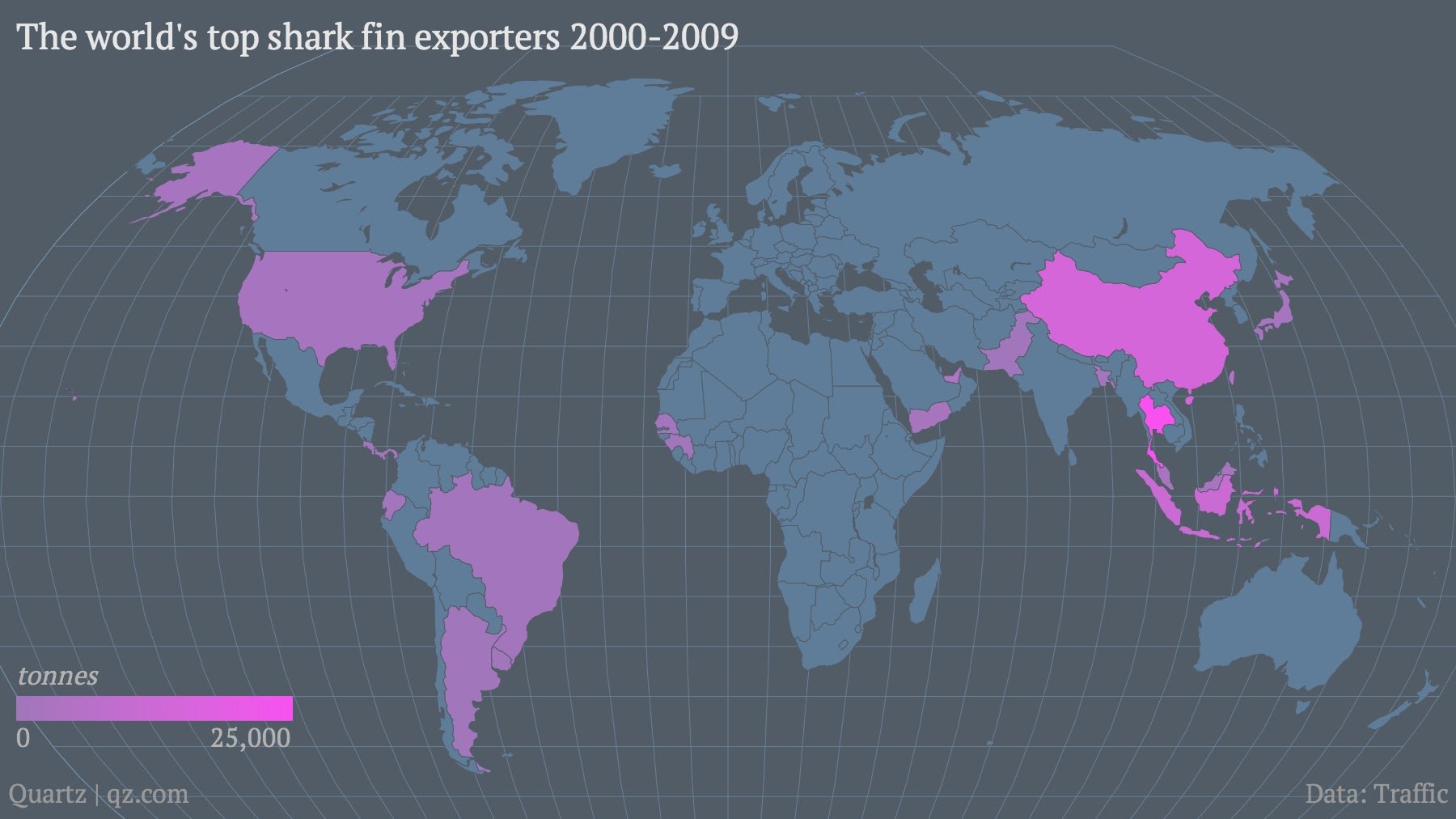Behold the gory technique Costa Rican fishermen use to kill as many sharks as possible
Something quite nasty is showing up on Costa Rican docks these days: the spinal columns of butchered sharks, with three fins dangling from them. This mutilation is happening enough that Costa Rican authorities alerted Interpol to warn other countries about this gruesome tactic.


Something quite nasty is showing up on Costa Rican docks these days: the spinal columns of butchered sharks, with three fins dangling from them. This mutilation is happening enough that Costa Rican authorities alerted Interpol to warn other countries about this gruesome tactic.

Why involve Interpol? Because this is a clever idea—one that might appeal to anyone who wants to profit handsomely from selling shark fins but lives in the 46 other countries (pdf) that, like Costa Rica, require sharks to be returned to land with fins still attached to their spinal columns.
The idea behind those laws is to prevent fishermen from “shark-finning”—hacking off the shark’s fins, which are much more lucrative, and throwing the rest of the shark back in the sea to bleed out, drown or be devoured. The luxury status of shark-fin soup in Hong Kong, China and other Chinese enclaves means fins can fetch as much as 100 times as much per pound as the rest of the shark. Since fins are at most 5% of a shark’s total mass, it makes more sense to fill a boat’s hold with valuable shark fins than the entire bodies. (More on all that here.) Removing most of the body, but leaving the spinal column and the fins, allows fishermen to meet the letter of the law while still packing more fins on their boats.

That trade is the main reason why shark numbers are 10% what they were 50 years ago. Though demand for fins has dropped sharply, someone’s still paying a lot for them.
Costa Rica has long been one of the leading fin exporters. In 2011, some 350,000-400,000 sharks (link in Spanish) were killed for their fins in Costa Rican waters, according to the government. It was that year that British celeb chef Gordon Ramsay and his TV crew said they were held at rifle-point and doused in gasoline for trying to document a fin-drying operation in a Costa Rican harbor. The next year, in 2012, Costa Rica closed legal loopholes that, among other things, had allowed foreign fishing boats to circumvent the ban on finning in its waters. But it seems that fishermen have still been taking advantage of a legal gray area to strip shark skeletons of most of their meat while leaving the fins attached.

Does the Costa Rican coast guard’s vigilance mean that the government’s finally getting serious about stopping the trade? Maybe. But the president of Incopesca, Costa Rica’s fisheries authority, is under investigation for illegal shark-finning, meaning there must be other interests at play as well. Interpol’s alert squares with other reports that the shark fin trade continues. For an industry that relies on state fuel subsidies to stay profitable—and that’s facing the collapse of fish stocks after decades of overfishing—selling as many fins as you can is one of the only ways to keep making money.